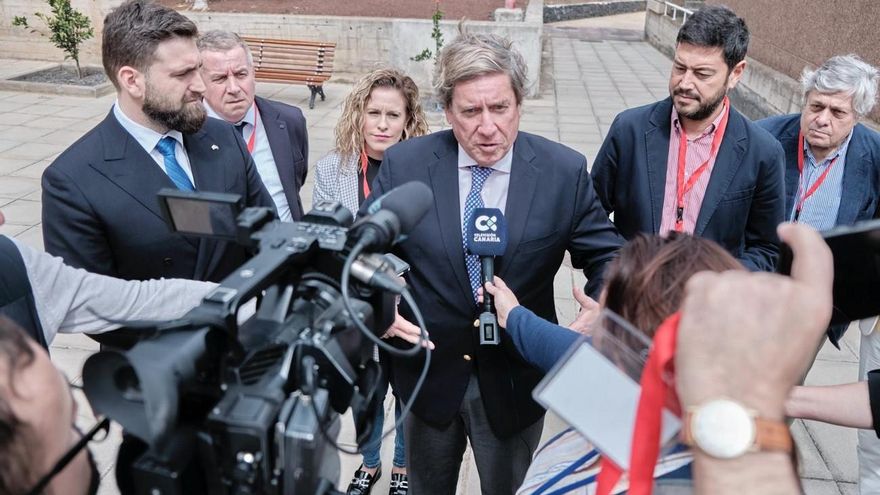
In Tenerife, Euro MP Gabriel Mato raised the alarm that the Canary Islands lost 600 million euros from the European Union cohesion funds during the 2014-2020 period, mainly from the European Regional Development Fund (ERDF) and, to a lesser extent, from the European Social Fund.
Gabriel Mato, accompanied by the Vice President of the Canary Islands Government and president of the party in the Islands, shared this information within the framework of the Cohesion Group Mission of the European People’s Party. This initiative included Bulgarian Andrey Novakov, Spaniard Leopoldo López, Czech Stanislav Polčák, and Latvian Inese Vaidere.
“Canary Islands have not effectively used 30% of the funds allocated to the Islands through these two instruments,” stated Gabriel Mato, who added, “this should make us reflect on whether we are doing things correctly.” “It is true that there is excessive bureaucracy and many difficulties for those who wish to develop projects through European funds, but these are not times to miss opportunities.” He also emphasized that not investing these funds “could lead to a reduction in the future of the funds allocated to the Archipelago”:
On the other hand, Manuel Domínguez expressed gratitude for the presence of the Euro MPs from various countries to exchange views with PP representatives at all levels of government on the challenges facing the Canary Islands when applying these funds.
The agenda of the European People’s Party Cohesion Group Mission on Friday included a visit to the Institute of Astrophysics of the Canary Islands (IAC) to see first-hand the progress of the scientific projects that the institution has undertaken thanks to European funds.
According to Mato, who was guided on this visit by the institute’s director, Rafael Rebolo, “the telescopes at Roque de los Muchachos, in La Palma, and Tenerife are examples of well-invested funds, as they make the Canary Islands a world reference in astrophysical research”.
He also explained that the scientific activity of the IAC not only puts the islands on the map of global research but also attracts academic institutions and international organizations that come to the islands to carry out some of their most ambitious projects.
“Projects like the Gran Telescopio de Canarias also enable young students from around the world to train in the islands,” Mato points out, adding that “cooperation agreements have been reached, with over 60 scientific institutions from 27 countries present in the Canary Islands”.
The head of the cohesion mission, Andrey Novakov, expressed how privileged he feels to witness the implementation of the work carried out by the European Union. “The largest and best telescopes in the world are here thanks to the European Development Funds,” he asserts.
Mato recalled that the European Solar Telescope will be installed in La Palma and clarified that, after the preparatory phase, construction and operation will follow. “This infrastructure will boost European research development and will be here, in the Canary Islands; there is definitely no better place in the world to build it,” he admits.
The Euro MPs also visited the Canary Islands Parliament and met with its president, Astrid Pérez. During the meeting, they learned about the political and administrative organization of the Canary Islands, emphasizing the role of the seven island councils as governing bodies due to the territory’s fragmentation. They also signed the Chamber’s guestbook.
Additionally, they visited the President of the Tenerife Island Council, Rosa Dávila, and its Vice President and Tourism Councillor, Lope Afonso, to discuss the migrant crisis in the Canary Islands and the specific problems faced by the islands’ small-scale farmers, who struggle with water management.
















